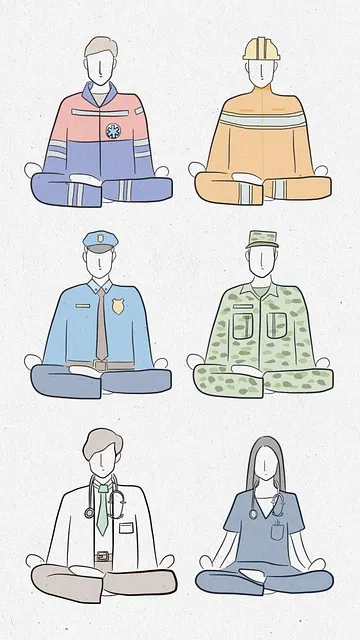The Aurora Kaiser Permanente behavioral health center is revolutionizing mental health care by challenging stereotypes through media representation. They advocate for compassionate storytelling, emphasizing recovery and diversity in narratives, and integrating education into treatment. By fostering empathy and providing non-judgmental support, the center encourages help-seeking behaviors and promotes understanding of mental illness, all while using media as a tool to destigmatize and empower.
In today’s media landscape, accurate representation of mental illness is crucial for fostering understanding and reducing stigma. This article explores how the Aurora Kaiser Permanente Behavioral Health Center is challenging negative stereotypes prevalent in media. We delve into their innovative strategies aimed at promoting compassionate and precise portrayals of mental health conditions. By examining these approaches, we can contribute to a more inclusive narrative that impacts public perception positively.
- Understanding the Impact of Media Portrayal on Mental Health Awareness
- The Aurora Kaiser Permanente Behavioral Health Center Approach to Challenging Stereotypes
- Strategies for Promoting Accurate and Compassionate Mental Illness Representation in Media
Understanding the Impact of Media Portrayal on Mental Health Awareness

The media plays a powerful role in shaping societal perceptions and beliefs about mental illness. Accurate and compassionate representation in film, television, and news outlets can significantly contribute to mental health awareness and reduce stigma. However, negative stereotypes and misconceptions often perpetuate the challenges faced by individuals living with mental health conditions. At Aurora Kaiser Permanente behavioral health center, we recognize that media influences public opinion and decision-making processes, including help-seeking behaviors.
When media portrays mental illness realistically and with empathy, it can foster understanding and encourage support for those dealing with similar struggles. Promoting positive narratives that highlight the potential for recovery and resilience can inspire hope and motivate individuals to prioritize their mental wellness. By encouraging inner strength development and positive thinking, these representations may also prompt people to seek professional help earlier, thus improving overall well-being outcomes.
The Aurora Kaiser Permanente Behavioral Health Center Approach to Challenging Stereotypes

The Aurora Kaiser Permanente Behavioral Health Center takes a proactive approach to challenging stereotypes surrounding mental illness. They believe in destigmatizing mental health issues through education and representation that reflects reality. The center promotes accurate depiction of individuals with mental illness, focusing on their strength and resilience rather than perpetuating negative tropes. By integrating compassion cultivation practices into treatment plans, the center encourages empathy and understanding among both patients and the wider community.
Their comprehensive approach to mental health care includes programs aimed at mood management, tailored interventions for specific disorders, and initiatives that foster inner strength development. By providing a supportive environment free from judgment, Aurora Kaiser Permanente Behavioral Health Center empowers individuals to seek help without fear of being misrepresented or misunderstood.
Strategies for Promoting Accurate and Compassionate Mental Illness Representation in Media

Media has a powerful influence on shaping societal perceptions and understanding of mental illness. To promote accurate and compassionate representation, several strategies can be implemented. Firstly, Aurora Kaiser Permanente behavioral health center advocates for diverse storytelling where individuals with lived experiences of various mental health conditions are given agency and represented authentically. This includes showcasing recovery journeys, challenging stigmatizing stereotypes, and presenting a range of effective treatment approaches.
Additionally, the integration of mental wellness journaling exercise guidance in media production processes can empower creators to explore nuanced narratives. Encouraging self-reflection and cultural sensitivity among writers, directors, and actors fosters more accurate portrayals. Furthermore, healthcare provider cultural competency training is vital to ensuring professionals involved in media production understand the nuances of mental health issues, thereby facilitating responsible representation.
Mental illness representation in media plays a pivotal role in shaping public perception and promoting mental health awareness. The Aurora Kaiser Permanente Behavioral Health Center has pioneered an effective approach to challenging stereotypes, demonstrating that accurate and compassionate portrayal can significantly impact understanding and support for those living with mental health conditions. By implementing strategies that emphasize authenticity, diversity, and empathy, the media industry can foster a more inclusive narrative, reduce stigma, and ultimately improve access to care. This collaborative effort is crucial in creating a society that not only understands but also embraces the complexities of mental illness.






